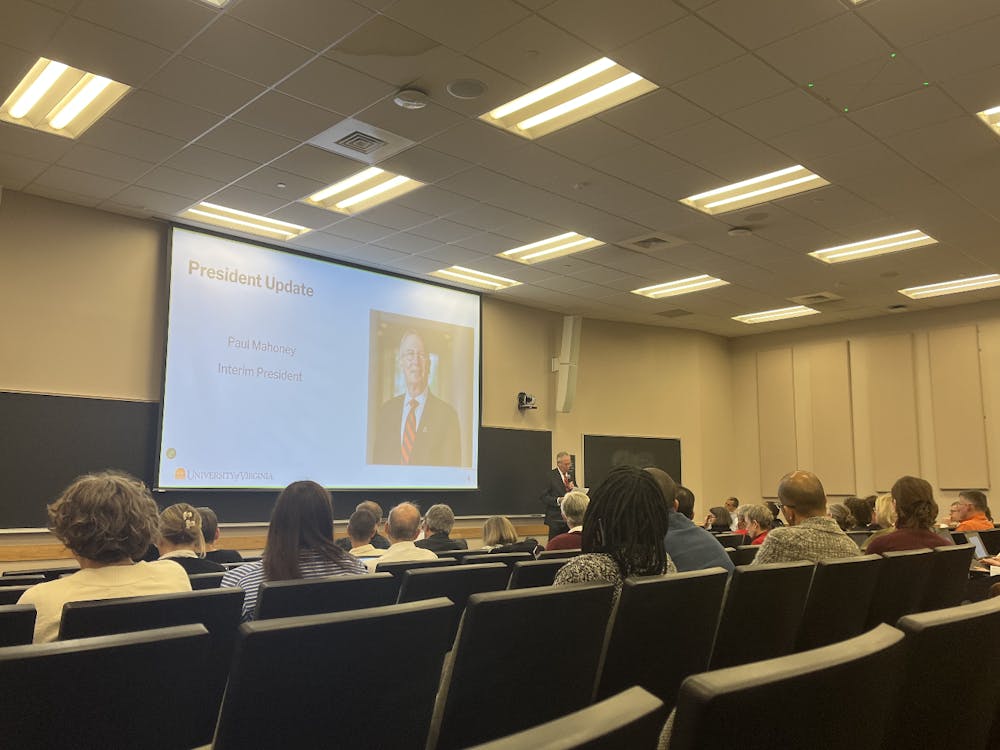Environmental Science Prof. James Galloway was named the joint recipient of the $200,000 Tyler Prize for Environmental Achievement yesterday. The prize is administered by the University of Southern California.
Galloway, a long-time researcher of nitrogen's widespread effects on the environment, said he will share the prize with friend and colleague Harold Mooney, a Stanford University biology professor.
Galloway said his research draws attention to the ability of one reactive nitrogen atom to "cascade" through different environmental systems, causing a range of adverse impacts. The nitrogen research, he said, sets him apart from a public largely concerned with carbon dioxide and global warming. Galloway also noted that the problems are linked.
"Nitrogen and carbon dioxide issues have to be addressed in an integrated manner," Galloway said. "One of the values of having this year's Tyler Prize focus on nitrogen is the public awareness it will raise."
The Tyler Prize, considered the "Nobel Prize" of environmental science, according to a University press release, puts Galloway and his research in distinguished company. According to the Tyler Prize Web site, Tyler laureates include former U.S. Surgeon General C. Everett Koop and primate researcher Jane Goodall.
In addition to the monetary award, Galloway said he will receive a gold medallion at an April 11 ceremony in Beverly Hills. Galloway will also give the 2008 Tyler Prize Laureate Lecture at USC.
Galloway said his lecture is called "Nitrogen: Cascading Through Our Lives." Though nitrogen in its inert form is an abundant element in our atmosphere, it can be harmful when chemically converted to its reactive form, he noted. Reactive nitrogen used in fertilizers can be carried to the coast and can kill fish, then be converted to nitrous oxide and destroy atmospheric ozone. This concept is what Galloway terms the "nitrogen cascade."
"The key is that any additional conversion of [molecular nitrogen] into reactive nitrogen has the potential to cause that nitrogen to enter the cascade," Galloway said. "As time goes on, reactive nitrogen accumulates and we are leaving a legacy for future generations."
Galloway said he hopes, with time, there will be an acceptance of the global need for "nitrogen management."
One of Galloway's colleagues echoed this sentiment, adding that Galloway's research may be beneficial outside of the laboratory.
"Jim's work has strong practical applications in the world," said University Prof. David Smith, associate chair of the department of environmental sciences. "The kind of work he is doing creates a strong foundation for solutions to global issues."
In January, Galloway was elected a fellow of the American Geophysical Union. He was became a fellow of the American Association for the Advancement of Science in 2002.
Galloway "is a good researcher and excellent teacher," Smith said. "He is really deserving of the award, which in my opinion recognizes his stature as a long-time researcher in the area of global nitrogen and the cascade problem"






